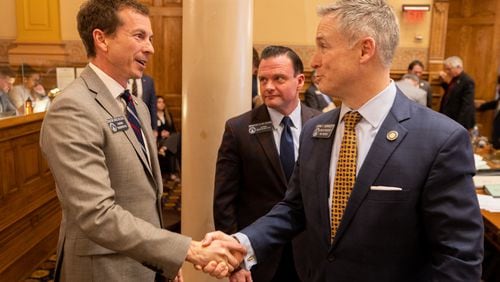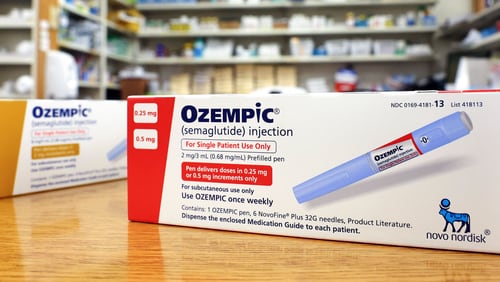Private school students in Georgia can receive direct state subsidies to educate thousands of students, under new legislation signed by Gov. Brian Kemp.
Senate Bill 233, the Georgia Promise Scholarship Act, establishes a taxpayer-funded program that might initially cost $140 million a year. It creates a “voucher” program for general education students beginning in the fall of 2025 and lasting for a decade unless lawmakers extend the expiration date.
The funds are for children who live in the attendance zone of a public school performing in the bottom 25% on state measures. Parents will be entitled to $6,500 a year per student.
The Senate originally passed SB 233 last year, but it failed in the House. A heavily revised version cleared the House in March, returning the bill to the Senate for final approval.
What is a voucher?
Vouchers have existed in other states for decades. They are taxpayer payments for private schooling. Wisconsin passed the first such program in 1989. Numerous other states followed. In 2007, Georgia passed a law that established a voucher program limited to students with disabilities. In 2021, Kemp signed Senate Bill 47, expanding that Special Needs Scholarship Program to include students with a diagnosis for a variety of conditions — from autism and cancer to drug or alcohol abuse.
Georgia also has a private school scholarship program funded by taxpayers who get a full state tax credit for their contributions. The Qualified Education Expense Tax Credit was enacted in 2008 with a $50 million annual cap, but lawmakers have gradually expanded it, first to $58 million and then to $100 million. Their last increase, in 2022, raised the cap to $120 million. Because of this indirect revenue stream, the Georgia Supreme Court has said it is not publicly funded and therefore isn’t a traditional voucher, though that’s what critics have labeled it.
Who is eligible for this new voucher?
Any child who lives in the attendance zone of a public school performing in the bottom 25% on state measures is eligible for this new subsidy, with certain caveats. The student will have to have attended their local public school for a year, unless they are a rising kindergartner. The parents must have at least a year of Georgia residency, unless one is on active duty in the military. Priority will go to families earning less than 400% of the federal poverty level, or about $120,000 for a family of four.
How about the money?
This program can be funded at up to 1% of what the Quality Basic Education formula says lawmakers should put into the public education budget, which is expected to exceed $13 billion next year. Midyear adjustments typically add hundreds of millions of dollars. So proponents estimate it’ll cost about $140 million initially, enough for about 21,000 students. But funding will be at the discretion of the Legislature and governor each year.
Parents will be entitled to $6,500 a year per student who leaves — or in the case of kindergartners, never enters — their local public school. Unlike traditional vouchers, this one can be used for more than tuition. The legislation establishes “promise scholarship accounts” controlled by parents. They could also spend the money on costs associated with homeschooling, such as books, tutors or online classes. And they could use it to pay for doctors, transportation, account fund managers and other costs. The legislation follows laws in other states such as Florida, where allowable expenses included theme park passes, televisions and paddleboards. Those items are not on Georgia’s list, but parents could spend money on expenses not foreseen in SB 233 as long as the expenditures are approved by a state oversight committee.
Who would oversee the money?
An organization to be called the Georgia Education Savings Authority will manage the program. The authority will fall under the Georgia Student Finance Commission, which oversees education funds generated by the Georgia Lottery. (The commission’s board will serve on the authority’s board.) The executive director of the authority, or a designee, will chair a parent review committee that reviews and approves expenditures.
Is this a good use of taxpayer money?
The academic results for large voucher programs in other states are mixed, at best. Some older, smaller voucher programs produced positive results. But test scores fell in states with expanded programs, such as Ohio and Louisiana. In some cases, the academic declines for voucher recipients were larger than those attributed to the pandemic.
Public schools that lost students to vouchers tended to improve a little, but that correlation hasn’t been studied much, so the impact of the competition isn’t entirely clear.
Critics of vouchers contend students would be better off if they stayed in their public school and if the state spent more money on public education. They note that private school tuition can cost tens of thousands of dollars and is beyond the reach of many lower-income families, even with a $6,500 subsidy. They also say the program will erode public schools for students left behind because each public school will lose state funding for students who take a voucher. They also note that private schools are not accountable to taxpayers.
SB 233 attempts to address concerns about accountability by requiring testing of students in schools that enroll voucher students. However, those schools could choose one of several tests, only one of them being the state-standardized Milestones administered in Georgia public schools. That lack of uniformity will likely make it impossible to compare the performance of private schools to that of public schools. Also, the data will be presented to the public only in aggregate, so the performance of individual private schools will be known only to the state officials collecting the data.
About the Author







